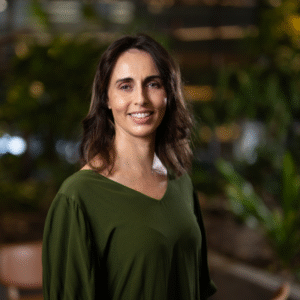
In this blog, Dr Lara Maia-Pike from C4IE highlights how Year 10 students across Australia face anxiety during career events and subject-selection interviews for Years 11 and 12, and explains that while making decisions about their future is challenging for most, it becomes even more complex for those in equity groups—especially students with disability.
Transition to post-school life
Research on post-school transition and student aspirations suggests that higher socioeconomic backgrounds continue to shape aspirations towards prestigious careers and pathways. While gender and school achievement play a significant role in the decision to pursue university studies, schools’ geographic location and socioeconomic makeup can also impact the subject options available to students. In recent years, rapid changes to school-to-work pathways have resulted in fewer stable, long-term employment opportunities for young people. There is increased pressure on young people to pursue university pathways, a trend further reinforced by government higher education policies shaping public perceptions of what success after school looks like.
Adding to the complexity is a vocational education and training (VET) system that is often undervalued, can be difficult to navigate, and is troubled by rogue providers.
The Australian government has made significant changes to enabling programs designed to help students from equity groups access university education. However, government discourse and policies continue to portray students from equity groups as having low aspirations, while failing to adequately recognise the barriers these young people face during school years and beyond.
Many students find themselves adjusting their aspirations downward as they navigate the realities and uncertainties of secondary school. Various forms of disadvantage, like living in a remote location and having a disability can also overlap and create additional barriers to achieving educational and career aspirations.
Low aspirations or low expectations?
Research on career aspirations of students with disability in regular schools in Australia is limited. My research, which focuses on the aspirations of students with disability in general education in Queensland, found that barriers often begin much earlier—sometimes in primary school or even before students start school.
Most students in my study faced a culture of low expectations, inconsistent provision of reasonable adjustments, and inadequate consultation about their adjustment needs or their plans for life after school. These barriers significantly affected the options available to them in Year 10. Although the selection of senior subjects may not be the most significant factor influencing most young people’s careers, limited options during the senior phase of learning can further reduce opportunities for people with disability to pursue and realise their aspirations. Students with disability are more likely to have lower educational attainment, experience bullying and be suspended, with almost 1 in 4 students with disability leaving school before the age of 15. Alternative pathways do exist, but they can be time-consuming and costly and may not translate into increased university participation.
The Australian Universities Accord Final Report found that students with disability have achieved parity targets, so what is the problem?
Disability advocates have criticised the Accord Report due to questionable data on disability prevalence and participation rates in higher education. More importantly, the Accord report concluded that it had done enough for students with disability.
There is a lack of recognition in both school education and higher education policies regarding the need to invest in the educational achievement of students with disability. Despite poorer academic outcomes, students with disability continue to be left out of priority equity targets.
The flow-on effect of educational barriers
Young people with disability face ongoing barriers to finding and maintaining meaningful employment because of discrimination, a lack of employer understanding of reasonable adjustments, and inaccessible recruitment processes.
For some disabilities, like autism, the unemployment rate is almost six times higher than that of those without disability and more than double the rate for people with disability. To improve employment outcomes and economic participation of people with disability, the Australian Government awarded $22.1 million to establish Australia’s first Disability Employment Centre of Excellence earlier this year.
Re-imagining aspirations and achievement for students with disability
Education is a human right that enables all other rights. Hence, schools and universities play a vital role in improving equity, inclusion, and participation of young people with disability in the Australian economy and society.
While educational institutions in themselves cannot resolve labour market challenges or guarantee employment outcomes for students with disability, they have a moral and legal responsibility to provide access and participation of people with disability on the same basis as their peers without disability. Inclusive practices have also been shown to improve academic outcomes for students with and without disability.
For Australia to realise its aspirations of excellence and equity as set in The Alice Springs (Mparntwe) Education Declaration, schools and universities must become genuinely inclusive. A prosperous future for Australia hinges on our collective commitment to advocate for all and ensure that no one is left behind.
The full article is also available on AARE: Students in Year 10 are set to choose senior subjects. Those with disability miss out. Why? – EduResearch Matters
 |
Dr Lara Maia-Pike is Postdoctoral Research Fellow at The Centre for Inclusive Education (C4IE). Her PhD project was investigating the post-school transition planning experiences of students with disability in secondary schools. Lara is a core member of the team that designed and delivered QUT004: Living and Working Collaboratively, Ethically and Inclusively. |